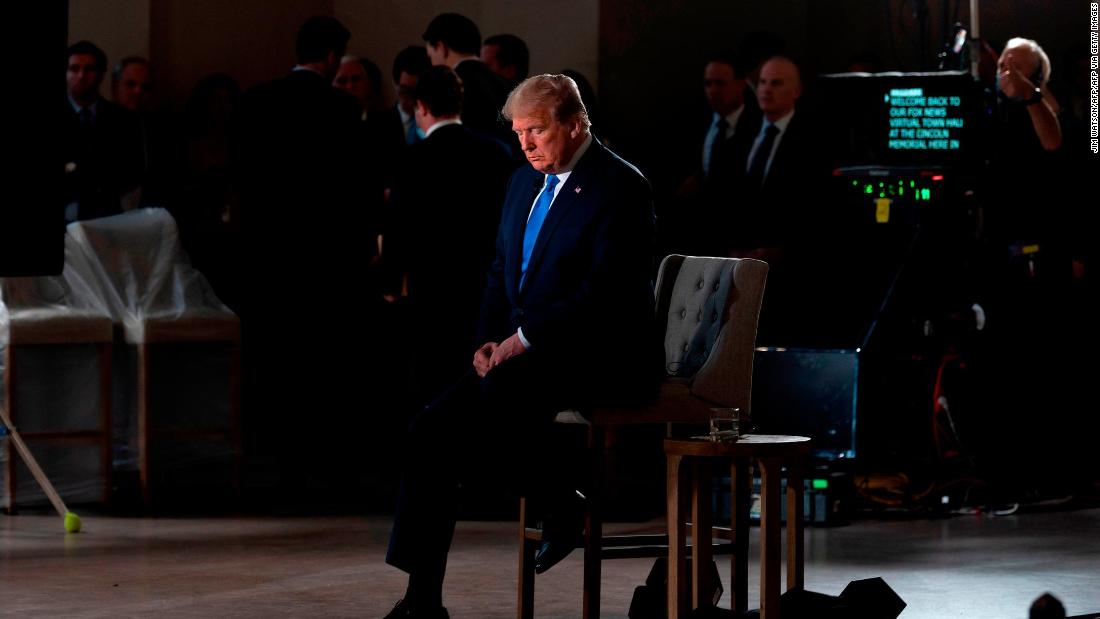
As a self-professed hand-wringing progressive, I say: not so fast on this one. There is no doubt the media struggled mightily in 2016 with how to cover Trump, but 2020 is different, both in what the media has learned and the difference between covering an incumbent and reporting on a challenger.
The mistakes of 2016 have been well covered. Donald Trump dominated the airwaves from his early morning phone calls to "Morning Joe" on MSNBC to repeated preaching that he would Make America Great Again, to coverage of his rallies on cable networks like CNN.
Of course, there were many difficult, scandalous stories Trump had to deal with, but through sheer aggression, showmanship and possibly a boost from Wikileaks and the Russians, he was always able to drive the campaign narrative, get his message out -- and win.
The media's failures in covering his opponent, Hillary Clinton, are easy to dissect. The most talked about and reported stories were about her emails, which in the end proved to be a big nothing burger. It may have given a hint about her penchant for secrecy, but it never should have been a defining characteristic of her campaign.
Even more frustrating for Clinton's campaign was the lack of coverage for her issue-based announcements. She had a plan for everything even before Elizabeth Warren had a plan for everything. But these got little coverage, brushed aside by the media in favor of focusing on her response to the latest demagogic broadside from Trump.
But things have changed in a significant way since 2016. Reporters, editors and anchors have figured out you can't take anything Trump says at face value. The Washington Post has catalogued more than 22,000 lies and falsehoods since he took office. Daniel Dale of CNN has become somewhat of a cult TV star for his rapid-fire fact checking of Trump rallies and press conferences. He leaves viewers wondering how he knows so much. So, the majority of the coverage of what Trump says is taken with a large grain of salt.
More importantly, the President now has a nearly four-year record to both run on and defend. Put simply, the media can now focus on not just what he's said, but on what he's done. And that has proven to be a nightmare for Trump. Take the headlines Friday morning on CNN's "New Day." The show led with Joe Biden criticizing Trump on coronavirus at Thursday night's CNN Town Hall and then reported on the President attacking FBI director Christopher Wray, overruling his scientists and allowing political operatives to write CDC guidelines, according to internal documents obtained by the New York Times, and a report last week from the Washington Post that the Trump administration killed a plan from the United States Postal Service to mail five masks to every household in the country. This sort of top-of-the-broadcast lineup was unthinkable in 2016 where much of the coverage was centered on whatever charge Trump hurled at Clinton that day.
The real challenge for Trump is that he no longer controls the campaign narrative. His broadsides against Biden as a lawless socialist who wants the suburbs to be overrun by minorities are drowned out by his feeble defense of what his administration has actually done.
In 2016, completely overmatched on advertising spending by Clinton, he was able to drive the narrative with attacks on her and with his frequent live appearances on both network and cable television. He has had some success turning relatively small instances of violence at otherwise peaceful protests into a major wedge issue. But this time, given the facts on the ground, he really is only able to appear unchallenged on Fox News shows and the occasional interview with Rush Limbaugh or the far-right OANN.
Trump's own lack of discipline is contributing enormously to his problem. If he hadn't publicly taken on the FBI director, there was a chance his anti-Biden message would have broken through the mainstream media. But when any politician gives reporters a buffet of news nuggets, they will always go for the most compelling, even if it's not the most important.
Facing another shortfall in campaign cash, Trump can't depend on the media to help him drive the narrative. His own record is defining the narrative and that's bad news for him.
So, to my progressive friends, it's not right to say 2020 is the same as 2016. There are still times he gets away with political murder, but those incidences are vastly outweighed by a critical, and fair, in my opinion, focus on his record as President.
No question, there are still times I find myself yelling at the TV: "That's a lie, somebody say that's a lie."
But only Fox News, which functions as a state propaganda tool, will allow him to pursue his strategy of running as a challenger even though he's the President. The rest of the media is doing a pretty good job of making this about what's important -- what he does, not what he says.
"Media" - Google News
September 20, 2020 at 09:54AM
https://ift.tt/33K2QA3
Why Trump can't fox the 2020 media like he did in 2016 - CNN
"Media" - Google News
https://ift.tt/2ybSA8a
https://ift.tt/2WhuDnP
Bagikan Berita Ini














0 Response to "Why Trump can't fox the 2020 media like he did in 2016 - CNN"
Post a Comment